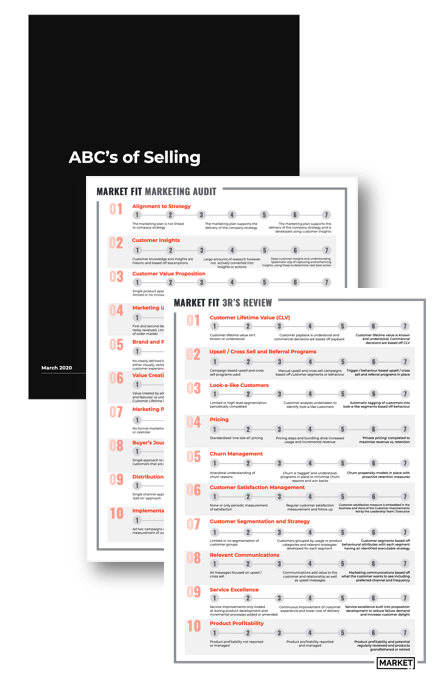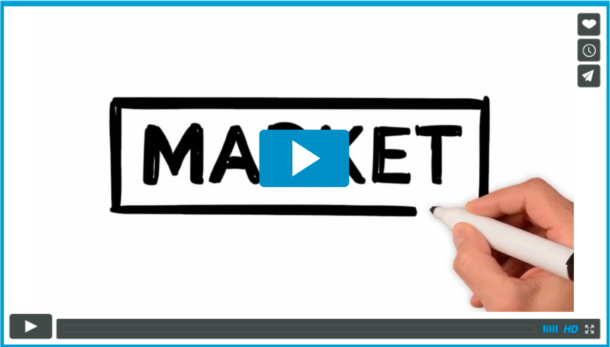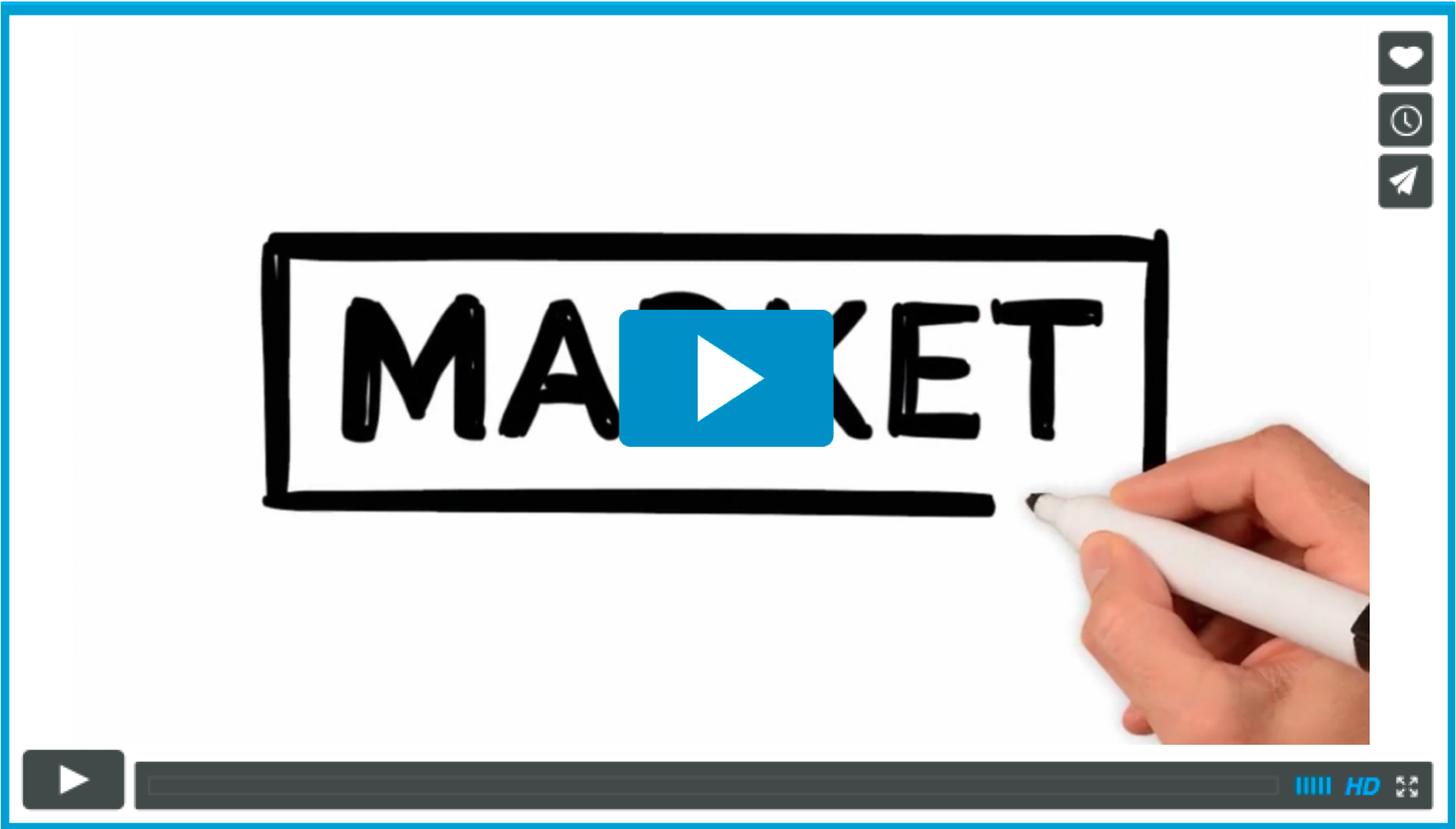Sales doesn’t need to be hard when you use ‘Spin Selling’, a proven methodology that can help accounting firm owners and law office partners excel in their sales efforts. This approach transforms the traditional sales process into a more consultative and value-driven conversation, ensuring your clients feel understood and confident in their purchasing decision.
In this blog post, we will delve into the key aspects of Spin Selling, such as understanding your customer’s needs, asking effective questions, demonstrating value through tailored solutions, and ultimately closing deals faster. By mastering these techniques within the spin selling framework, you’ll find yourself achieving greater sales success without resorting to pushy or cheesy tactics.
Join us as we explore how implementing the Spin Selling method can revolutionize your approach to sales and elevate your business growth by addressing buyer’s specific concerns with precision and expertise. Remember – Sales doesn’t need to be hard it just requires strategic thinking backed by practical execution.
Table of Contents:
- Sales doesn’t have to be hard
- Sales doesn’t have to be cheesy
- Harness the Power of Spin Selling
- Understand Your Customer’s Needs
- Ask Effective Questions
- Demonstrate Value
- Close Deals Faster
- FAQs in Relation to Sales Doesn’t Need to Be Hard When You Use Spin Selling
- Conclusion
Sales doesn’t have to be hard
Selling doesn’t have to be hard. Grasping the requirements of purchasers, inquiring pertinent inquiries and exhibiting worth in a way that speaks to them can make selling simpler. Spin Selling is one of the most powerful tools available for professional service firms looking to close deals faster.
It involves using a series of structured questions to uncover potential problems or challenges your customers may face, and then offering solutions tailored specifically for their needs. This technique assists in rapidly discovering where development possibilities lie and how to assist them reach their aspirations. By taking this approach, you can more effectively engage with prospects and create trust by showing that you understand their unique business objectives.
Once you comprehend what motivates each customer, you can customise your sales approach to satisfy their distinct requirements or distress points. For instance, if a client is looking for ways to make their accounting firm more efficient and cost-effective, digital lead generation could be the ideal solution as it streamlines processes while slashing manual labour costs associated with traditional methods of acquiring new clients. By getting into the nitty gritty details and providing solutions that hit the mark, you can build trust with prospects and close deals faster than ever before.
It’s also essential when engaging in conversations that value is demonstrated as early as possible in the conversation so that prospects understand why investing in services offered by your company will benefit them significantly over competitors’ offerings. Showing tangible results from past projects or outlining case studies detailing successful outcomes are great ways of doing this—potential customers want proof before committing any resources towards working with a particular firm.
Sales doesn’t have to be hard, and with the right strategies it can even become enjoyable. However, sales should not come off as cheesy either – let’s explore how Spin Selling helps you achieve this balance.
Sales doesn’t have to be cheesy
Sales doesn’t have to be cheesy. It’s not about aggressively pushing products, but rather engaging with customers and recognising their wants. This method of sales focuses on developing relationships by having conversations rather than pushing products or services onto customers. By asking effective questions, you’ll gain insights into what your customer really wants and how your product or service can meet those needs.
Demonstrating value is the crux of great selling – by illustrating how your product or service will tackle their problem or make life easier, you’ll prove to them why they need it and why investing in it trumps any other solution. Highlighting features such as “value for money”, “cutting-edge technology”, and a “tested record” can give customers assurance when making a purchase decision from you rather than another provider who may not offer these assurances.
The most important outcome is closing deals faster – don’t wait around for weeks or months for a sale to happen when you could close one within days (or even hours). Once a joint advantage has been ascertained, make an arrangement to ensure both sides comprehend the outlooks ahead of time; this guarantees that everyone knows precisely what they are gaining from the agreement and will avoid any unforeseen issues in the future.
By taking advantage of these echniques, owners of accounting firms and partners in law offices can increase their lead generation efforts while providing an excellent customer experience. This approach not only creates trust between business owner/professional service provider and client but also ensures quicker sales cycles, resulting in more revenue opportunities.
Sales doesn’t have to be cheesy when you use the right techniques and tools.
Harness the Power of Spin Selling
Sales is a difficult task, but it doesn’t have to be. Having the proper methods and approaches can make sales simpler and more efficient.
Spin Selling was developed by Neil Rackham in the 1980s after he studied over 35,000 sales calls from different industries. He found that successful salespeople focused on four key steps: understanding customer needs, asking effective questions, demonstrating value, and closing deals quickly. By following these steps in sequence with each customer interaction, you’ll find yourself better equipped to close more deals than ever before.
The first step o involves getting to know your customers’ needs as well as possible so that you can tailour your pitch accordingly. Enquire about their existing state – what issues are they contending with? What solutions do they already have in place? You need to understand their unique circumstances before moving onto the next step or offering any solutions or services of your own.
Once you’ve identified their needs and gathered enough information about their current situation, it’s time to ask effective questions which will lead them towards considering a solution provided by yourself or your company. These should be open-ended questions which allow for deeper conversation instead of yes/no answers – this helps create an atmosphere where both parties feel comfortable discussing topics openly without feeling pressured into making decisions immediately.
Afterwards comes demonstrating value – this means showing how what you offer meets the specific requirements outlined by the customer earlier on during questioning stage (or even exceeding those expectations). Showing tangible results such as case studies or data points allows customers to see exactly why working with you would benefit them beyond just hearing promises from a salesman’s mouth alone. This also serves as an opportunity for building trust between both parties since customers appreciate transparency when making decisions regarding service providers/vendors/etc.
Once all other steps have been checked off the list, it’s time to seal the deal. Don’t let potential leads hang around too long without taking decisive action – whether that be signing contracts or coming to terms and conditions. Make sure you act quickly through this process so both parties feel comfortable about finalizing details in a timely manner while still upholding high standards throughout negotiations (if applicable). A win-win situation for everyone involved.
When interacting with potential clients or customers during sales interactions, you’re able to craft tailored pitches based on individual requirements while also helping build relationships built on trust and mutual respect. It may take some practice, but eventually these skills will become second nature, allowing professional service firms such as accounting offices and law firms to increase efficiency within their operations leading towards greater overall success rates
Understand Your Customer’s Needs
Realising what the consumer requires is indispensable when it comes to sales. To be successful in sales, it is important to not only understand what you are selling but also the customer’s motivation and intended use for it. Knowing this will help you tailor a solution that meets their individual needs, instead of just trying to push a one-size-fits-all product or service.
Start by asking questions about the customer’s goals and objectives. Unearth the predicaments they are dealing with in their enterprise and ascertain how your goods or services can help address them. For example, if an accounting firm is looking for new software solutions, ask them which areas of their operations they want to improve upon and which features would be most beneficial for their workflow processes. This information can then be used to customize a package that fits the client’s exact requirements—and give them more value than competitors who offer generic solutions with no customization options.
Using NLP keywords such as “tailoyred solution” or “customized package”, emphasize the customer’s needs throughout your communication with them. Make sure to illustrate your product or service through stories and examples during presentations so they can easily visualize themselves benefiting from it without any doubts. Utilize active language to ensure that customers comprehend exactly what type of benefit they will receive from working with you rather than another provider in the industry.
Finally, keep track of conversations with customers over time so you can better anticipate future requests based on past experiences. This way, when customers come back for additional services down the line, you already have an idea of what kind of tailored solution would work best for them before even starting discussions. Not only does this save time but it also helps build trust between both parties since clients feel like they are being heard and understood every step along the way towards closing deals faster while still getting maximum value from each purchase made through your company.
Gaining comprehension of your customer’s expectations is essential for successful sales, as it enables you to create an answer that fits their particular needs. Uncovering the customer’s needs through thoughtful queries is key to a successful sale; this allows you to gain deeper insight into what they need and how best to give them value.
Ask Effective Questions
As a professional service firm, it is essential to ask effective questions in order to uncover the customer’s pain points and determine how you can best provide value. SPIN (Situation, Problem, Implication, Need-Payoff) questioning is an invaluable tool for this purpose.
When asking Situation questions, focus on understanding the context of your customer’s current situation. These types of questions help you gain insight into their needs and objectives. For example: “What challenges have you faced lately?” or “How has the market changed since last year?”
By posing inquiries that explore any potential roadblocks, such as “What challenges are preventing you from achieving your goals?”, you can gain further insight into the customer’s needs and how to best assist them. Ask open-ended questions such as: “What problems do you need to solve?” or “What roadblocks are getting in the way of success?” This will give you more information about what they need help with and where they could use some assistance.
Implication questions allow you to understand how these problems affect other areas of their business or life. You can also get a better idea of what consequences might occur if these issues remain unresolved by asking things like: “How does this problem impact other departments/people in your organization?” or “What would happen if nothing changes?”
Asking effective questions is a key component of spin selling and can help you uncover the needs of your potential customers. Demonstrating value to them through your services will then be much easier once those needs have been identified.
Situation, Problem, Implication, and Need-Payoff Questions
These four types of questions are designed to guide the sales conversation towards discovering the customer’s motivations and demonstrating the value of your product or service.
Situation Questions: These are used to gain an understanding of where your potential customer currently stands with their current situation.
They can help you get an idea of what they need from you as well as any challenges they may be facing. Examples include “What’s been happening since we last spoke?” or “How has this project evolved since we first discussed it?”
Problem Questions: Problem questions focus on uncovering what issues or obstacles your prospect is dealing with in order to better understand how you can help them achieve their goals.
For example, “What challenges have you faced so far?” or “What roadblocks have prevented progress on this project?”
Implication Questions: Implication questions dig deeper into why these problems exist and how they affect other areas of business operations.
This helps build trust between yourself and your prospect while also providing valuable insight into their decision-making process.
Examples include “How does this issue impact other departments within your organization?” or “What would happen if nothing changes regarding this problem?”
Need-Payoff Questions: Finally, Need-payoff questions allow you to make a case for why investing in your product/service will provide value for them now and in the future.
You want to demonstrate how working together will benefit both parties involved by addressing their specific needs with tangible solutions that solve their problems quickly yet effectively over time .
An example could be something like “If we were able to address these issues successfully, what kind of results do you think we could expect?”Utilizing Situation, Problem, Implication and Need-Payoff (SPIN) questions during sales conversations with customers can drastically improve digital lead generation for professional service firms. By doing so, they are able to craft solutions that meet each customer’s individual needs and motivations while simultaneously demonstrating the value of their product or service at every stage of the process.
Demonstrate Value
To make a convincing argument for why their offering is the optimal choice, professional service companies must demonstrate its worth to potential customers. In order to do this effectively, there are three key elements: asking effective questions, demonstrating value, and providing tangible evidence of results.
Asking Effective Questions:
Asking targeted questions about the customer’s needs and goals can help uncover opportunities where your firm’s services could provide valuable solutions. This helps you identify how your offerings can meet their objectives in an efficient manner while also allowing you to tailor your proposal accordingly.
Once you have identified the customer’s needs, make sure they understand how your services will satisfy them by illustrating a comprehensive solution with real-world examples and emphasizing any features or capabilities that set you apart from competitors. Explain clearly how each component of your offering works together as part of a comprehensive solution and use real-world examples wherever possible so that they get a better idea of what benefits they stand to gain by choosing you over other options available on the market. Be sure to highlight any features or capabilities that set you apart from competitors too – such as access to cutting-edge technology or highly experienced staff members – as these can really help differentiate yourself from the competition.
Demonstrating value is essential to close deals faster and build long-term relationships with clients. By understanding the principles of spin selling, you can learn how to craft effective messages that demonstrate your value quickly and easily.
Close Deals Faster
Are you tired of spending hours and hours trying to close deals? Do you wish to quicken the procedure without compromising on quality or client contentment? Spin selling is a powerful technique that can help professional service firms close deals faster.
Spin selling starts with understanding your customer’s needs. To effectively spin, you must first identify the customer’s challenges and needs by engaging in an inquisitive conversation about their business and industry. This means having an in-depth conversation about their business and industry, asking questions, and actively listening to their responses. Once you have identified the areas where they need help, then it’s time to start spinning.
Spin selling involves using stories and metaphors as a way of demonstrating value. It allows customers to visualize how your services could make a difference in their lives or businesses by creating vivid mental images of success scenarios. For example, if you’re providing accounting services for small businesses, you might tell a story about another client who was able to save money on taxes thanks to your advice – this will give potential clients an idea of how much they could benefit from working with you too.
Asking effective questions is also key when spin selling – this helps keep the conversation focused on finding out more about the customer’s needs while also giving them space to explain themselves further if needed. Questions should be open ended rather than yes/no ones so that customers feel comfortable sharing information with you; however they should still be specific enough so that there isn’t any confusion over what is being asked or discussed during conversations.
Finally, don’t forget the importance of closing deals quickly once all parties involved have come together on terms that everyone agrees upon – this ensures both sides get what they want without wasting any more time than necessary. To do this successfully requires clear communication between both parties as well as setting realistic expectations before entering into negotiations – these two things will go a long way towards making sure everyone gets what they need out of each deal quickly and efficiently.
Using spin selling techniques can drastically reduce the amount of time spent trying to close deals while still ensuring quality results for clients. It also makes sales conversations more interesting, which increases engagement from potential buyers. So next time someone asks “how do I close deals faster?” remember: harnessing the power of spin selling is one surefire way to guarantee success.
FAQs in Relation to Sales Doesn’t Need to Be Hard When You Use Spin Selling
What are the shortcomings of SPIN selling?
SPIN selling has been widely used in the sales process, but it can be limiting when dealing with professional service firms. It relies heavily on asking questions to uncover customer needs and can sometimes miss out on important details that could help shape a more effective solution. Additionally, SPIN selling is time consuming as it requires extensive conversations with prospects to properly understand their situation before providing a tailored solution. Finally, SPIN selling does not always provide enough focus on value-based messaging which may result in missing out on potential opportunities for upsells or cross-sells.
Is SPIN selling effective?
Yes, SPIN selling is an effective tool for professional service firms. By probing customers to uncover their motivations and needs, salespeople can use SPIN selling as an effective tool for building meaningful relationships with potential clients that may lead to closing deals. By actively listening to customers and asking questions that help uncover their true motivations, salespeople can create more meaningful relationships with potential clients and increase the likelihood of closing deals. Additionally, SPIN selling provides structure to conversations which helps ensure all relevant information is discussed in each interaction.
Why is spin important in sales?
By leveraging their unique selling points and distinguishing themselves from rivals, sellers can use spin to create a competitive edge in sales. It also helps build trust with potential customers by highlighting relevant successes and expertise in a particular field. Spin enables sellers to create compelling narratives that draw people in, creating interest and excitement about what they have to offer. Finally, spin can help close deals faster by providing buyers with specific reasons why they should choose one product or service over another.
How do you increase sales with SPIN selling?
SPIN selling is a powerful tool for increasing sales. It stands for Situation, Problem, Implication and Need-payoff. By using this technique, professional service firms can effectively identify customer needs and provide tailored solutions that meet their individual requirements. This method helps build trust with customers by demonstrating the firm’s understanding of their situation and problem areas as well as the potential benefits they could gain from working together. Additionally, SPIN selling allows firms to focus on the value proposition rather than simply pushing products or services onto prospects which leads to higher conversion rates and increased sales.
Conclusion
By asking the right questions, customizing a solution to fit customer needs and grasping their requirements, you can seal deals in record time. Spin Selling provides sales professionals with the tools they need to create value for their customers while also driving results in their business. Don’t let another sale slip away; try out this technique today.




